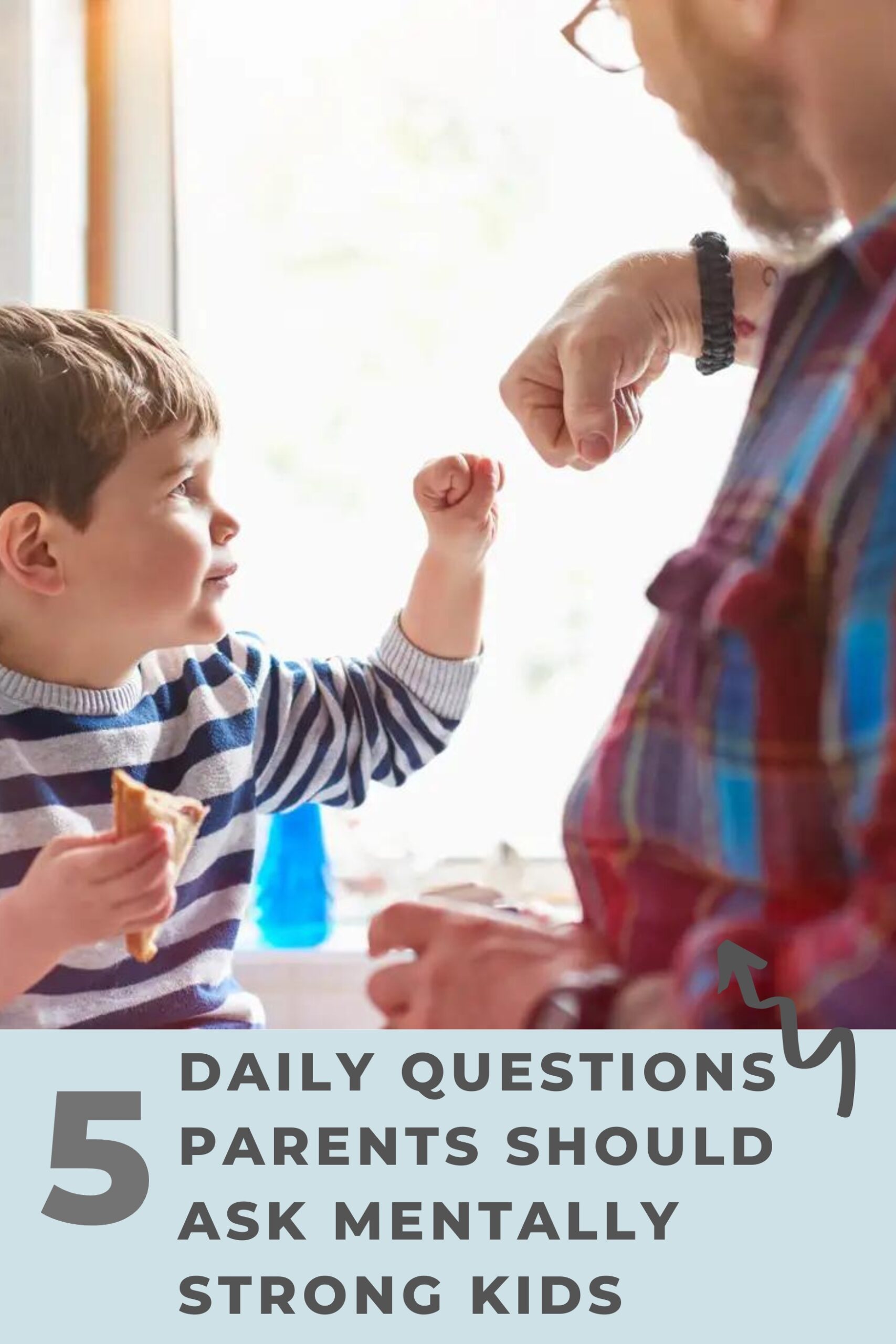Discover how mentally strong kids are nurtured through daily parental interactions. Learn the 5 essential questions that promote emotional resilience and wellbeing in children.
In today’s fast-paced world, raising mentally strong kids is a top priority for parents. It’s not just about physical health but also nurturing their emotional well-being. In this article, we will explore the five daily questions parents should ask their children to help them become mentally strong individuals. These simple yet powerful questions can make a significant difference in a child’s life.
1. How Was Your Day?

This question serves as an excellent starting point for open communication. When you ask your child how their day was, you’re expressing interest in their experiences and emotions. It’s an invitation for them to share their thoughts and feelings with you. By actively listening to their response, you create a safe space for them to express themselves, whether it was a day filled with triumphs or challenges.
2. What Made You Smile Today?

Focusing on positivity is essential for a child’s mental well-being. This question encourages your child to reflect on the moments that brought them joy during the day. It might be something as simple as a friend’s laughter, a tasty snack, or a fun activity. By highlighting these positive moments, you help your child develop a mindset that appreciates and seeks out happiness in everyday life.
3. Did You Face Any Challenges Today?

Life is full of challenges, and learning to navigate them is a crucial aspect of mental strength. When you ask your child about the challenges they encountered, you open the door for discussions about problem-solving. This question helps them recognize that facing difficulties is a part of life, but it also empowers them to develop resilience and find solutions to overcome obstacles.
4. How Can I Help You?

Asking how you can help your child is an expression of your support and willingness to assist them in their endeavors. It reinforces the idea that you are there for them, no matter the situation. This question fosters a sense of security and trust, making it easier for your child to seek your guidance and share their concerns. It also teaches them the importance of seeking help when needed, which is a valuable life skill.
5. What Are You Grateful For?

Gratitude is a powerful emotion that can significantly impact mental strength. By encouraging your child to think about what they are grateful for, you help them shift their focus from what might be lacking to what they have. This positive reframing not only cultivates contentment but also teaches them resilience in the face of adversity. Gratitude encourages a mindset that appreciates the good in life, even during challenging times.
Final Words
Incorporating these five questions into your daily routine can have a profound impact on your child’s mental strength. By fostering open communication, positivity, problem-solving skills, and gratitude, you equip them with essential tools for life.
FAQs
How often should I ask these questions to my child?
You can ask these questions daily or adapt them to your family’s schedule. The key is to make them a regular part of your conversations.
What if my child doesn’t want to answer these questions?
Respect their boundaries but gently encourage them to share. Over time, they may become more comfortable opening up.
Can these questions be adapted for teenagers?
Absolutely! The questions can be adjusted to suit your child’s age and developmental stage.
Are there any other ways to promote mental strength in kids?
In addition to these questions, encourage activities like mindfulness, sports, and creative expression to further enhance their mental resilience.
Can mental strength be developed in adults too?
Yes, mental strength can be developed at any age. The principles of open communication, positivity, problem-solving, and gratitude apply to adults as well.
